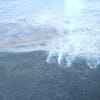Australia's social media ban for under-16s sparks mixed reactions

Australia has passed a new law banning children under the age of 16 from using social media platforms like TikTok, Instagram, and Facebook. The law, approved on Thursday, forces companies to block kids under 16 from logging in, or they could face fines of up to A$49.5 million (US $32 million). The government says the ban will protect children from harmful content online, but it has sparked mixed reactions from young people, parents, and tech companies.
The ban will start in full by November 2025, but a trial to test ways to enforce it will begin in January 2025, according to a recent report by Reuters. Prime Minister Anthony Albanese said the law is needed to protect children from risks like cyberbullying, harmful content about body image, and online abuse. "We're making sure that mums and dads can have that different conversation today and in future days," Albanese said, as per the report.
How is the public reacting?
Reactions from the public have been varied. Some, like Sydney resident Francesca Sambas, support the move. "I think that's a great idea because I found that the social media for kids (is) not really appropriate, sometimes they can look at something they shouldn't," she said to Reuters.
Others, however, feel differently. Shon Klose, a 58-year-old, criticised the law when speaking to Reuters, saying, "I'm feeling very angry, I feel that this government has taken democracy and thrown it out the window. How could they possibly make up these rules and these laws and push it upon the people?"
Young Australians have reacted in different ways. Some are frustrated and say the law won't stop them. Speaking to Reuters, 11-year-old Emma Wakefield said, "I feel like I still will use it, just secretly get in." Many young users are already thinking about ways to get around the ban, which has raised concerns that they might turn to less safe corners of the internet instead.
How are big tech companies reacting?
Big tech companies like TikTok, Meta (which owns Instagram and Facebook), and Snapchat have criticised the law. TikTok said the ban could push children into more dangerous online spaces. A TikTok spokesperson told Reuters, "We want to work together to keep teens safe and reduce the unintended consequences of this law for all Australians."
As per the Reuters report, Meta also spoke out against the law, calling the process rushed and unclear. It pointed out that just last week, a parliamentary committee said it wasn't clear how much harm social media actually causes to young people. Snapchat said the law leaves many questions unanswered about how it will work in practice.
A subject of criticism
The law has also been criticised for how quickly it was passed, adds the Reuters report. The bill was introduced with little notice and approved as part of 31 other laws on a hectic final day of parliament for the year, says many who criticise the law. Advocacy groups like the Digital Industry Group, which represents social media companies, said both the public and platforms don't fully understand what is required under the new rules.
Still, the government says the law is necessary. Earlier this year, parents told a parliamentary inquiry about children who had been harmed by cyberbullying, with some even self-harming. Albanese said that while the ban won't be perfect, it's an important step. "We've got your back is our message to Australian parents," he said, as per Reuters.
Australia's ban is stricter than similar laws in other countries. In France and parts of the US, kids can still access social media if their parents allow it. Australia's approach is a total ban, which could set an example for other countries to follow.

 For all latest news, follow The Daily Star's Google News channel.
For all latest news, follow The Daily Star's Google News channel. 








Comments